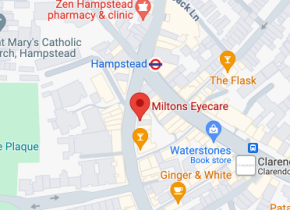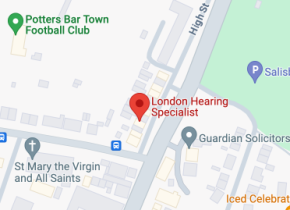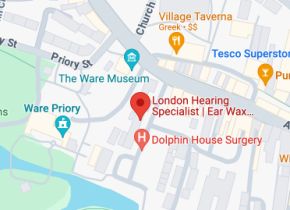Your Child's Hearing Problems May Not Be Due To Hearing Loss
You might be surprised to hear that one of the most common types of hearing loss is not due to a damaged ear but is actually caused by an ear wax build up. Other conditions such as an ear infection or other treatable inner ear issues can instantly restore your hearing once treated. Book your child's complete, diagnostic hearing test today with an expert audiologist.
Why Hearing Tests for Children Are Important
Hearing loss is the most common developmental disorder for newborns. Even mild hearing loss can interfere with a child’s ability to learn languages, speech, and social skills. Children's hearing tests can help identify hearing loss as early as possible, allowing clinicians to intervene and improve the child’s hearing and develop the strongest possible communication skills
There are several reasons why a child may have a hearing problem or experience temporary hearing loss. Some possible causes of hearing loss that may be detected during routine tests include:
- Glue ear: This is caused by a build-up of fluid in the middle ear, which is common in young children.
- Infection: Infection can develop in the womb or at birth. Common infections, including rubella or cytomegalovirus, can cause progressive hearing loss.
- Inherited conditions: Conditions such as otosclerosis, which stop the ears or nerves from working properly.
- Damage to certain structures of the ear, such as the auditory nerves or cochlear, which transmit hearing signals to the brain. This could be caused by a severe head injury, exposure to loud noise or a head injury.
- Being starved of oxygen at birth
- Illnesses such as meningitis and encephalitis.
Children's Hearing Test Prices
Other clinics may offer a free basic 10-minute hearing test but our full, diagnostic test will provide you with a complete picture of your ear's health.
Our complete hearing test is one of the most advanced tests available and costs £105. Your appointment will last around 60 minutes and will reveal an in-depth report on the health of your outer, middle and inner ears.
To ensure accurate results, the test can only be completed if child is comfortable, attentive, and able to work with the audiologist during the appointment.
The 7 stages of our test include:
- Extensive Medical History
- Otoscopy
- Video Otoscopy
- Full Hearing Assessment
- Explanation of Results
- Recommendation & Solution
Free vs Paid Hearing Tests
There are 2 main reasons that you may wish to choose a paid hearing test over a free hearing test. First, when you pay for a hearing test you can be assured that a fully trained and experienced audiologist will be performing the test. Also, a paid test will be conducted in a fully sound-treated room or booth with multiple tests being performed to get a complete picture of your child’s hearing and ear health.
- Audiologists vs. AudiometristsBoth are healthcare professionals who seek to improve the lives of people with hearing loss however each has different qualifications and responsibilities. An audiologist specialises in medical assessment and management of hearing loss, identifying, treating, and monitoring disorders of the auditory and vestibular systems. However, audiometrists specialise in the non-medical assessment and management of hearing loss and have a reduced scope of practice compared to audiologists
- Basic Vs Complete TestA complete hearing test should offer Otoscopy and Pure Tone Audiometry with Air-Conduction and Bone-Conduction testing. The full spectrum of frequencies should be tested allowing for the understanding of the patient's hearing ability and location of hearing loss in the auditory pathway. A free hearing test is usually just a screening and it will be a quick 5 or 10 minute test that you will simply pass or fail.
A paid hearing test is usually performed in a sound-treated room or booth and is carried out by a fully trained and experienced audiologist. Alternatively, a free hearing test can take place in a storefront, sound-treated room or booth and can be carried out by an audiologist, audiometrist, nurse, or hearing clinic receptionist.
What are the Different Types of Hearing Tests for Children
We provide different types of hearing evaluations. Some of the tests may be used for all ages, while others are age-specific. Some of the children’s hearing tests we offer include the following:
Hearing Tests for a Newborn Baby
There are two main types of hearing tests for newborns. The tests can be done together or individually:
- Evoked Otoacoustic Emissions (ECOAE)This test uses a tiny, flexible plug that is put into the baby’s ear. Sounds are sent through the plug. A microphone in the plug records the otoacoustic responses (emissions) of the normal ear in reaction to the sounds. If there are no emissions, the baby may have hearing loss. The test is painless and only takes a few minutes. It can be done while the baby sleeps.
- Auditory Brainstem Response (ABR)This test uses electrodes attached with adhesive to the baby’s scalp. It is painless and done while the baby sleeps. Clicking sounds are made through tiny earphones in the baby’s ears. The test measures the brain’s activity in response to the sound. This test only takes a few minutes. If the screening determines that your child has hearing loss, more testing may be needed. Our audiologist will advise you on the next course of action for your child’s hearing tests. The goal of these tests is to identify children with hearing loss as early as 3 months so treatment can begin before 6 months, which is an essential time for speech and language development.
A paid hearing test is usually performed in a sound-treated room or booth and is carried out by a fully trained and experienced audiologist. Alternatively, a free hearing test can take place in a storefront, sound-treated room or booth and can be carried out by an audiologist, audiometrist, nurse, or hearing clinic receptionist.
Hearing Tests for a Toddler
A toddler’s hearing assessment may include behavioural tests, EOAE and ABR. We may also conduct the following additional tests:
- Play AudiometryA play audiometry test uses an electrical machine to send sounds at different volumes and pitches into your child’s ears. During the test, the child often wears some types of earphones. In the toddler’s group, the test is changed slightly. The toddler is asked to do something with a toy every time the sound is heard. The test relies on the child’s cooperation.
- Visual Reinforcement Audiometry (VRA)During the test, the child is trained to look towards a sound source. When the child gives the correct response, the child is rewarded through visual reinforcement. This may be a toy that moves or a flashing light. The test is commonly used for children 6 months to 2 years old.
Hearing Tests for Older Child
Children’s hearing tests for older children aged 3 to 4 years include the following:
- Pure Tone AudiometryThe pure tone audiometry test uses an electrical machine that makes sounds at different volumes and pitches in the child’s ears. For this test, the child also wears earphones. The child is simply asked to respond in some way when the tone is heard in the earphones.
- TympanometryThis test is also called impedance audiometry. It helps to determine how well the middle ear is working. However, it does not tell if the child is hearing or not. However, it can help to find any changes in pressure in the middle ear.
Children Hearing Test FAQ's
- What is a hearing test?Hearing tests evaluate your child’s response to sound to determine whether they have a hearing loss. During the screening, the clinician observes your child’s responses to sounds. If they see signs of hearing loss, the clinician refers your child to an audiologist.
- Why are hearing tests important?Hearing loss is the most common developmental disorder in newborns. Even mild hearing loss can interfere with a child’s ability to learn language and social skills. As soon as a clinician knows a child has hearing loss, they can improve the child’s hearing and help them improve their communication skills.
- What happens during a hearing test?The course of a hearing test varies depending on the type we conduct. The audiologist will explain what you should expect during the test, and we will also explain each step of the hearing test in detail.
Find Our Specialised Audiology Clinics
Explore our seven dedicated clinics, each uniquely equipped to provide exceptional, individualized audiology care tailored to meet your hearing and balance needs.



